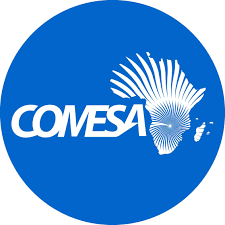THE Common Market for Eastern and Southern Africa (COMESA) is rallying its member states towards full adoption of digital technologies to tackle the developmental disparities within the bloc and enhancing efficiency in regional economic systems.
With only a few weeks ahead of the 20th COMESA heads of state and government summit in Zambia, the 19-member bloc is already drawing regional attention to digital economic integration as the panacea to long-term economic growth and efficient productivity on the continent.
The summit will take place in Lusaka on 18-19 July 2018 and will be preceded by meetings of ministers and technical officials starting from July 9, 2018.
“The theme for this year summit is ‘Comesa: Towards Digital Economic Integration’. It is designed to rally member states towards the full adoption of digital technologies to reduce the disparities in the state of digitisation across sectors in the COMESA,” head of corporate communications, Mwangi Gakunga, said.
“Specifically, it is intended to address disparities between high-tech and more traditional areas, and between COMESA countries and regions.”
The drive towards digital economic integration was mooted in November 2017 during a COMESA Council of Ministers meeting in Zambia, where delegates stressed the need to embrace digital technologies in the implementation of regional integration programmes. At that time, Zambian deputy president Inonge Wina acknowledged that globally, countries were increasingly trading with each other through electronic platforms.
She said COMESA states had, therefore, no option but to embrace ICTs in all regional integration programmes. These realities have compelled the regional bloc to adopt digitisation to entrench information communication technologies in trade facilitation programmes.
Already a number of trade facilitation applications are being developed to help in trade facilitation. These include the COMESA Virtual Trade Facilitation System, an online platform for trade facilitation instruments and a regional customs bond; Regional Customs Guarantee Scheme. An electronic Certificate of Origin (of goods for export) and a digital Free Trade Area Application that will incorporate e-Commerce, e-Legislation and e-Logistics are also being developed.
COMESA has also developed a new mobile application to be used by cross border traders in the region, which will be linked to the COMESA Centre. Once implemented, the mobile app shall assist the cross border traders to get information on the various trade related activities in the region as well as use the app to make payments.
COMESA is a regional economic community established in 1994. It brings together 19 African member states with a population of over 500 million people into a cooperative framework for sustainable economic growth and prosperity through regional integration.
According to the United Nations Conference on Trade and Development (2018) report, growing digitisation has raised the anxiety of the developing world, which stems from lagging digital capacities, weak supportive digital infrastructure and lack of comprehensive knowledge of the digitization process.
“Building data economy and digital infrastructure in the region can give rise to unique opportunities within the region, which will promote regional integration as well as boost intra-regional trade and help in fostering regional value chains. One such opportunity will be in terms of regional e- commerce,” says the global body.
In an academic paper published in May 2018 titled: “Digital Economy and Sub-Regional Integration” with focus on Central Africa, Cameroonian think-tank, Professor Jean-Emmanuel Pondi, also posits that the use of digital economy tools could greatly enhance the quality of life of Africans and ensure sustainable development for the entire continent. To him the digital economy is a huge asset towards strengthening regional and sub-regional integration. Prof Pondi defines digital economy as an economy based largely on digital technologies including digital communication networks, computers, software and other modern information technologies. He notes that such a framework is punctuated by intense competition and major changes with digitisation of many products and services as anchor of many economic services.
Meanwhile, a packed timetable for the COMESA Summit and other policy organs’ meetings has also been issued while delegates are expected to start arriving in Lusaka beginning July 7, 2018. Gakunga said among the key issues at this year’s summit agenda is the consideration of membership by Tunisia and Somalia.
“Negotiations for the admission of the two states have been concluded and what remains is the endorsement by the COMESA Council of Ministers and subsequent approval by the Heads of States Assembly. This will raise the number of COMESA member states from the current 19 to 21,” he said in a statement.
Gakunga said the summit was also expected to appoint a new secretary general take over from Sindiso Ngwenya, a Zimbabwean-born technocrat whose tenure of office is coming to an end. According to the programme shown to The Southern Times, the intergovernmental committee, which comprises of permanent/principal secretaries, will be the curtain raiser for the 10-day COMESA annual event and will take three days from 9-11 July.
The Council of Ministers would meet on 13 -14 July 2018 to make decisions on various recommendations presented by the intergovernmental committee on the way forward on implementation of COMESA integration programmes.




